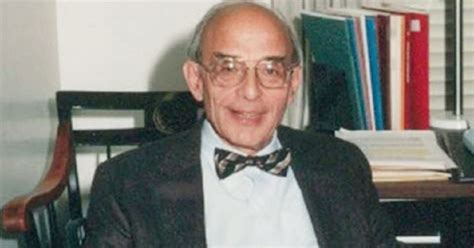A Quote by Tom Spanbauer
To admit ignorance is the highest knowledge. It is the necessary condition for all learning.
Related Quotes
We have heard of a Society for the Diffusion of Useful Knowledge. It is said that knowledge is power, and the like. Methinks there is equal need of a Society for the Diffusion of Useful Ignorance, what we will call Beautiful Knowledge, a knowledge useful in a higher sense: for what is most of our boasted so-called knowledge but a conceit that we know something, which robs us of the advantage of our actual ignorance? What we call knowledge is often our positive ignorance; ignorance our negative knowledge.
For a man’s life would become intolerable, if he knew what was going to happen to him. He would be made aware of future evils, and would suffer their agonies in advance, while he would get no joy of present blessings since he would know how they would end. Ignorance is the necessary condition of human happiness, and it has to be admitted that on the whole mankind observes that condition well. We are almost entirely ignorant of ourselves; absolutely of others. In ignorance, we find our bliss; in illusions, our happiness.
It is a common sentence that Knowledge is power; but who hath duly considered or set forth the power of Ignorance? Knowledge slowly builds up what Ignorance in an hour pulls down. Knowledge, through patient and frugal centuries, enlarges discovery and makes record of it; Ignorance, wanting its day's dinner, lights a fire with the record, and gives a flavour to its one roast with the burnt souls of many generations.
Knowledge about yourself binds, weighs, ties you down; there is no freedom to move, and you act and move within the limits of thatknowledge. Learning about yourself is never the same as accumulating knowledge about yourself. Learning is active present and knowledge is the past; if you are learning to accumulate, it ceases to be learning; knowledge is static, more can be added to it or taken away from it, but learning is active, nothing can be added or taken away from it for there is no accumulation at any time.
The endless cycle of idea and action, Endless invention, endless experiment, Brings knowledge of motion, but not of stillness; Knowledge of speech, but not of silence; Knowledge of words, and ignorance of the Word. All our knowledge brings us nearer to our ignorance, All our ignorance brings us nearer to death, But nearness to death no nearer to God. Where is the Life we have lost in living? Where is the wisdom we have lost in knowledge? Where is the knowledge we have lost in information? The cycles of Heaven in twenty centuries Bring us farther from God and nearer to the Dust.





































